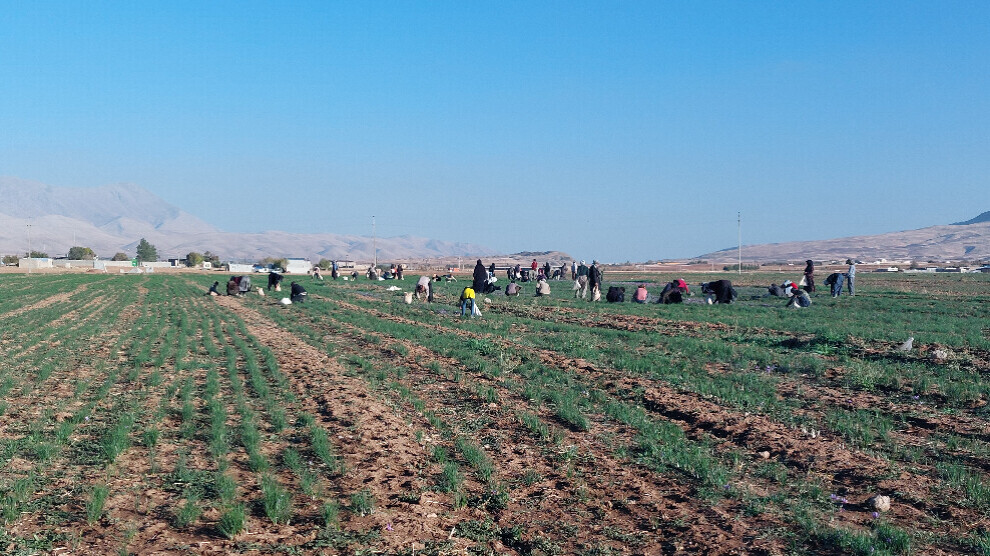Saffron produced by women in Rojhelat Kurdistan
In recent years, women workers and entrepreneurs have played an important role in the cultivation and harvest of saffron in Kermanshah. However, they receive no recompense for their work.

JUAN KERAMI
Kermanshah- Saffron cultivation has been seen as an important source of income in Kermanshah, Eastern Kurdistan, for several years. Serfirouzabad village located in the city of Halashi, is one of the centers of saffron cultivation in Kermanshah province. Although Halashi has a low urban population, it has a high rural population with more than 120 villages. The majority of its population is engaged in agriculture.
The agricultural lands of Sarfirouzabad are near the Saymarih River of Ilam province and the Qarasu River (Seimare River) of Kermanshah province. With 70,000 hectares of pastures and dense forests, this village has abundant natural resources. Wheat, barley, peas, sugar beet, corn, sunflower and watermelon are among the common agricultural products of this region. In recent years, saffron has become the main source of income for farmers.
Saffron, also known as “red gold”, is the world's most expensive spice. The most important reason why saffron cultivation started in a province like Kermanshah is that saffron cultivation does not require a lot of water.
Women harvest saffron
The saffron harvest season is usually in early November. Şenur Mohammadi, who lives in the city of Ravansar, is one of the leading entrepreneurs of Kermanshah province. She has inspired many farmers to grow saffron since she began to grow saffron in the province. Women farmers play an important role in growing and harvesting saffron in the province. Due to the plant's sensitivity, women harvest saffron flowers by hand.
They are paid much less relative to men
In the village, farmers want to employ women because women work coordinately and feel responsible. One of the women harvesting saffron in the village told us that saffron has been harvested in the village for two years. Although women make great efforts in saffron cultivation, they are paid much less relative to men. Women working in agriculture face many problems such as long working hours and lack of insurance and they do not receive their wages on time.
When the NuJINHA team tried to interview women workers in the village, male farmers prevented our team.
